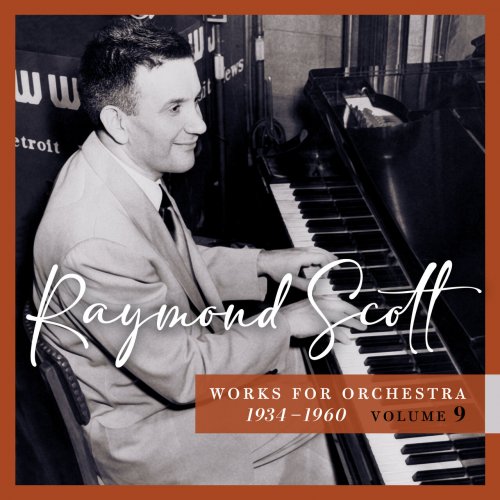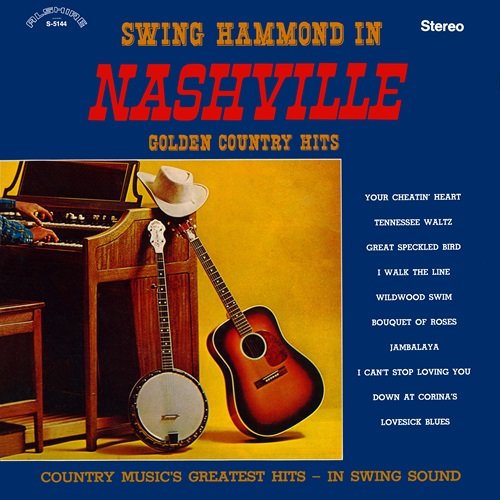Katia & Marielle Labèque, Boston Symphony Orchestra, Seiji Ozawa - Francis Poulenc - Concerto for 2 Pianos and Orchestra (1991)
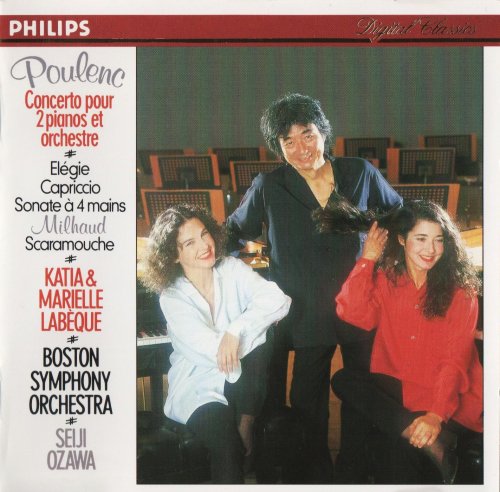
Artist: Katia & Marielle Labèque, Boston Symphony Orchestra, Seiji Ozawa
Title: Francis Poulenc - Concerto for 2 Pianos and Orchestra
Year Of Release: 1991
Label: Philips
Genre: Classical
Quality: FLAC (image+.cue,log,scans)
Total Time: 59:57
Total Size: 199 Mb
WebSite: Album Preview
Tracklist: Title: Francis Poulenc - Concerto for 2 Pianos and Orchestra
Year Of Release: 1991
Label: Philips
Genre: Classical
Quality: FLAC (image+.cue,log,scans)
Total Time: 59:57
Total Size: 199 Mb
WebSite: Album Preview
Concerto in D minor
1. I. Allegro ma non troppo
2. II. Larghetto
3. III. Finale (Allegro molto)
Sonata for piano 4 hands
4. I. Prelude (Modere)
5. II. Rustique (Naif et lent)
6. III. Final (Tres vite)
7. Capriccio (d'apres le Bal Masque) for 2 pianos
8. L'embarquement pour Cythre for 2 pianos
9. Elgie (en accords alterns) for 2 pianos
Darius Milhaud
Scaramouche
Suite for 2 pianos
10. I. Vif
11. II. Modere
12. III. Brazileira (Mouvement de samba)
Performers:
Katia & Marielle Labèque, pianos
Boston Symphony Orchestra
Conductor: Seiji Ozawa
Quebecoises Katia and Marielle Labeque deliver strong performances of mid-20th-century French music from Francis Poulenc and concluding with a suite by Darius Milhaud. The release is consistently good, from the music to the performance to the sound engineering, and is highly recommended.
The first part of the disc has Seiji Ozawa and the Boston Symphony joining the Labeque sisters for Poulenc's 1932 Concerto for two pianos. This work is attractive, very entertaining and... visionary. Poulenc grasped the inherent polystylistic dimension of his neoclassical style, and wrote music that ranges from the opening mock-Bach into early 19th-century Romanticism to faux Mozart and ends the opening allegro with a just stunning foray into Steve Reich-like gamelan music. I know that Stravinsky is usually held up as the leading light of neoclassicism, but for me, this Poulenc Concerto is the most forward-looking single work to arise from the entire movement. And it is highly entertaining and beautiful, to boot. It is the modernist work for today's post-modern culture.
The rest of the disc features the two Labeques playing two-piano music without Ozawa and the BSO. While it isn't at the level of the Concerto, the music is mostly attractive and usually interesting. Works include three of Poulenc's post-WW2 compositions, the short three-movement Sonata for two pianos, the Elegie and, less satisfactorily, a piece of film music, titled "The embarkation for Cythere" as well as an arrangement from his vocal entertainment from the 1930s, "The Masked Ball." The disc concludes with Darius Milhaud's 1937 Scaramouche Suite, another attractive short multi-movement work.
The performance throughout is very good. The two Labeque sisters actually play with very different personal tone colors, but that's a description not a criticism. The Concerto is done very well, with sparkle and life. I prefer this version strongly to the recording by Poulenc's only piano student, Gabriel Tacchino, and conductor Georges Pretre on EMI. In short, this is a very good release that I think you will enjoy.
The first part of the disc has Seiji Ozawa and the Boston Symphony joining the Labeque sisters for Poulenc's 1932 Concerto for two pianos. This work is attractive, very entertaining and... visionary. Poulenc grasped the inherent polystylistic dimension of his neoclassical style, and wrote music that ranges from the opening mock-Bach into early 19th-century Romanticism to faux Mozart and ends the opening allegro with a just stunning foray into Steve Reich-like gamelan music. I know that Stravinsky is usually held up as the leading light of neoclassicism, but for me, this Poulenc Concerto is the most forward-looking single work to arise from the entire movement. And it is highly entertaining and beautiful, to boot. It is the modernist work for today's post-modern culture.
The rest of the disc features the two Labeques playing two-piano music without Ozawa and the BSO. While it isn't at the level of the Concerto, the music is mostly attractive and usually interesting. Works include three of Poulenc's post-WW2 compositions, the short three-movement Sonata for two pianos, the Elegie and, less satisfactorily, a piece of film music, titled "The embarkation for Cythere" as well as an arrangement from his vocal entertainment from the 1930s, "The Masked Ball." The disc concludes with Darius Milhaud's 1937 Scaramouche Suite, another attractive short multi-movement work.
The performance throughout is very good. The two Labeque sisters actually play with very different personal tone colors, but that's a description not a criticism. The Concerto is done very well, with sparkle and life. I prefer this version strongly to the recording by Poulenc's only piano student, Gabriel Tacchino, and conductor Georges Pretre on EMI. In short, this is a very good release that I think you will enjoy.

![Telekaster - Space Lido (2025) [Hi-Res] Telekaster - Space Lido (2025) [Hi-Res]](https://img.israbox.com/img/2025-12/30/yx7eg4e48jipo0r1td3vnmxni.jpg)
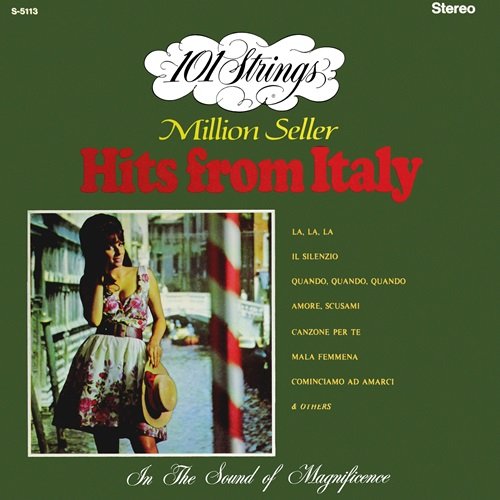
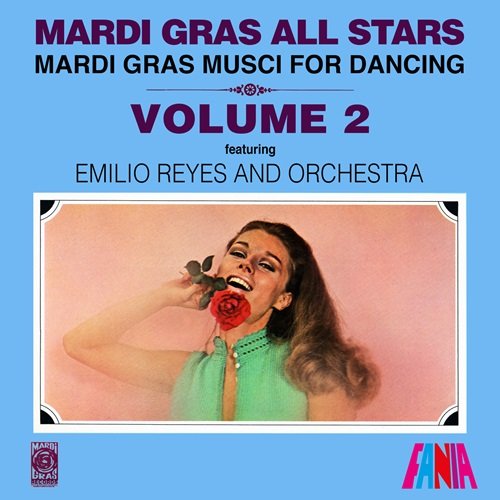

![Old Unconscious - Why Something? (2018) [Hi-Res] Old Unconscious - Why Something? (2018) [Hi-Res]](https://img.israbox.com/img/2025-12/31/bklidf83pdip6287hsne01h0a.jpg)
